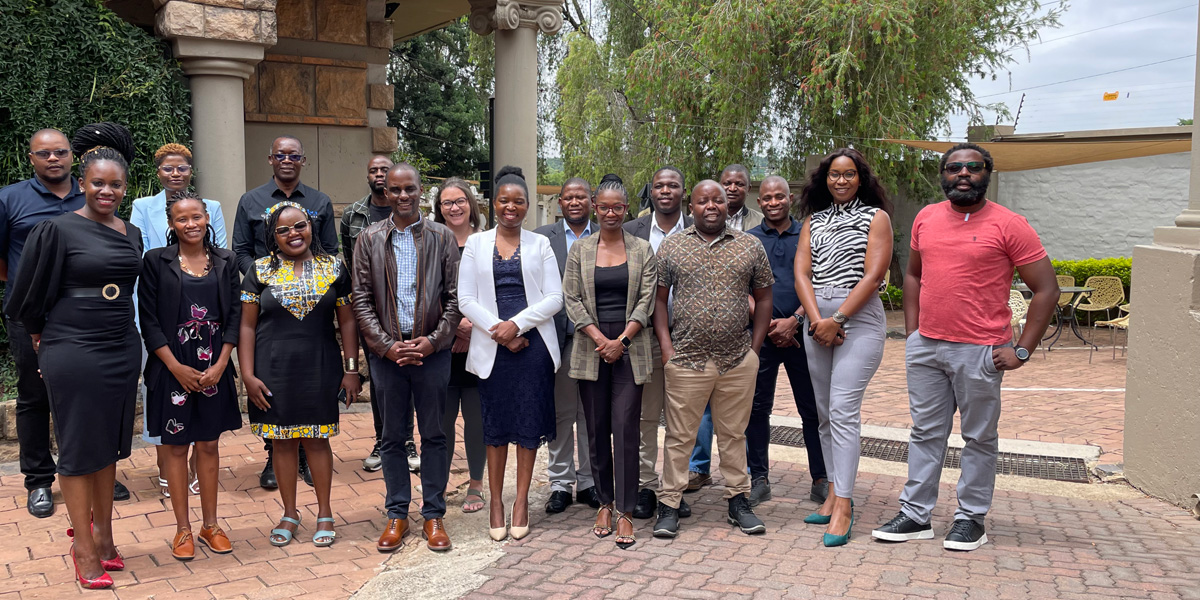On 30 November 2023 the Centre for Human Rights at the University of Pretoria(UP), hosted a regional engagement on rights-based approaches to addressing disinformation in Southern Africa. The engagement had members of academia, media and civil society from Botswana, Eswatini, Lesotho, Malawi, Mozambique, Namibia, Zambia and Zimbabwe.
The objective of engagement was to discuss the impact of disinformation in Southern Africa; to evaluate approaches to disinformation, against international laws and standards; and to explore rights-based approaches to combat disinformation.
In conceptualising disinformation and setting the context, participants discussed the various forms of misinformation and disinformation. This provided a springboard for exploring the prevalence of different forms of information disorder and the appropriate stakeholder responses. Each participant briefly described the state of disinformation in their countries and in relation to their work.
The preliminary sessions were followed by panel discussions on the intersection between disinformation and politics and elections, media, and vulnerable and marginalised groups including women, youth, persons with disabilities, sexual minorities and children. The final panel on emerging issues explored social media accountability, artificial intelligence, and climate and environmental justice. The panellists noted that disinformation is spread by various actors including politicians, media and even ordinary citizens. Periods that attract heightened public discourse such as elections are particularly vulnerable to disinformation that compromises the integrity of the information ecosystem. The media plays a dual function as purveyors and combats of disinformation. Given the responsibility of journalists to sustain and deepen democracy and protect public interest, there is a need to enhance accurate and objective reporting by the media. Participants also called for holders of public interest information to proactively and promptly disclose accurate and credible information as an important strategy to address disinformation.
Various organisations have released or are developing evidence-based research to inform strategic interventions on disinformation. Participants shared the different approaches they have used to address disinformation in their different contexts. LEXOTA (Laws on Expression Online: Tracker and Analysis) is one such tool that analyses disinformation laws and law enforcement actions in sub-Saharan Africa and their impact on freedom of expression. Of particular concern are vague and broadly phrased provisions susceptible to misinterpretation and misuse by law enforcement actors. Further, many of the laws have disproportionate sanctions that are out of place in a democratic society. The tool was developed as part of a multi-stakeholder collaboration that included the Centre. Media Monitoring Africa (MMA) discussed the impact of Real 411, a platform for the public to report digital harms such as disinformation, hate speech, harassment and incitement to violence. The Independent Electoral Commission of South Africa (IEC) and MMA created, and manage the platform. Real 411 is a useful reference for topics that are vulnerable to disinformation as South Africa gears towards the 2024 elections and can inform stakeholder interventions. Media Institute of Southern Africa (MISA) - Mozambique scaled up a fact-checking initiative on health misinformation and disinformation to include electoral disinformation ahead of the 2024 elections. In Eswatini, the Coordinating Assembly of Non-Governmental Organisations conducted a 2023 study on the electoral context that also examined the impact of disinformation on the elections. Additionally, MISA Lesotho is focusing on media literacy to tackle disinformation.
Moving forward, the participants called for increased evidence-based advocacy on rights-based approaches to handling disinformation particularly, by using a multistakeholder approach including civil society, the public and private sector and ordinary citizens. Capacity building of critical stakeholders such as parliamentarians and judicial officers who influence public perspectives and laws is also key. Additionally, civil society, media and human rights defenders should engage in continuous training on opportunities and threats to digital rights including disinformation. Where possible, stakeholders can embark on strategic litigation, for example, to counter controversial laws on disinformation that negatively impact freedom of expression.


